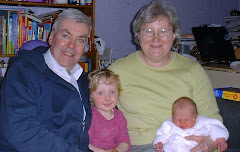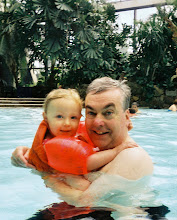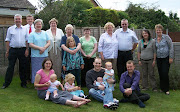
On now to the third of Peterson's books on Spiritual Theology. He begins by asserting that "the Jesus way wedded to the Jesus truth brings about the Jesus life." As Christians we live as part of the Kingdom of God( where Christ is King). We can and must refuse to let the culture dictate the way we go about our lives. He is strong on the importance of the community of faith and suggests - "the priesthood of all believers is not an arrogant individualism that, at least, in dealing with matters of God doesn't need anyone else. It is a confession of mutuality, a willingness to guide one another in following the way of Jesus."
He reminds us that at beginning of the Jesus story the imperatives to 'repent' and 'believe' come before the call to 'follow'. The temptations Jesus faced in the wilderness were about the way in which Jesus would go about his work. In rejecting the temptations Jesus refuses to do good things in the wrong way and for the wrong reasons. In this book I think Peterson will have much to say about the means and not just the end. Following Jesus is as much about feet as it is about eyes and ears. He suggests that the slogan 'what would Jesus do' should really be 'how does Jesus do it". I am presuming he is emphasizing that it is not just about what we do that matters, but also about the way we do it as followers of 'the Way'.
Jesus is our way to God, but also God's way to us - it is a 2-way highway.
Peterson then goes on to bring into this conversation 6 people whom he describes as those who embraced, prefigured and prepared for the way of Jesus - Abraham,Moses, David, Elijah, Isaiah of Jerusalem and Isaiah of the exile. But more of that another time.
Its the weekend and some more sport to watch on television tomorrow or I might even wander across the Stray and watch Harrogate Town in the second preliminary round of the FA Cup. Although I have been reliably informed that the garden is calling out for some tidying( a prayer for rain tomorrow, perhaps??).

















